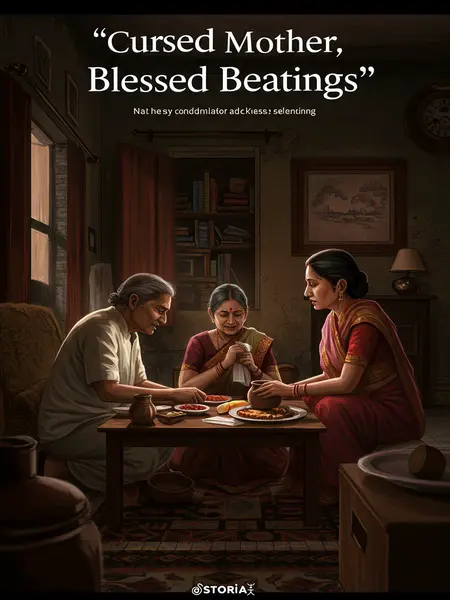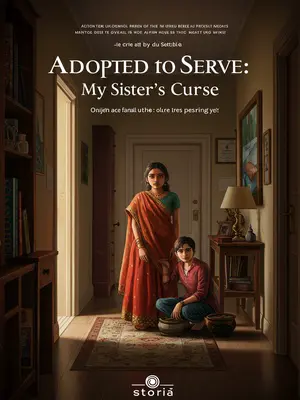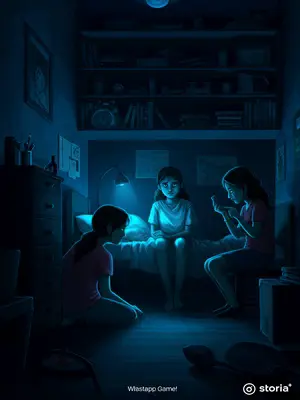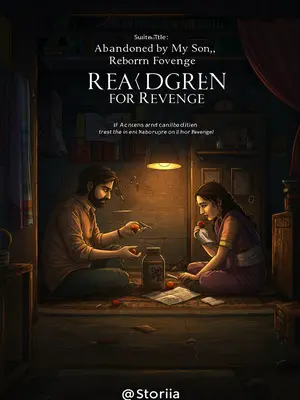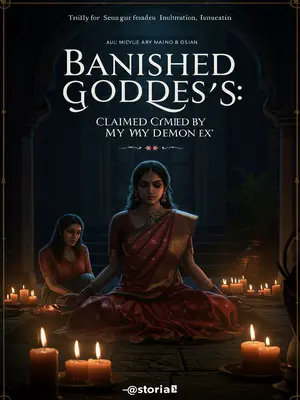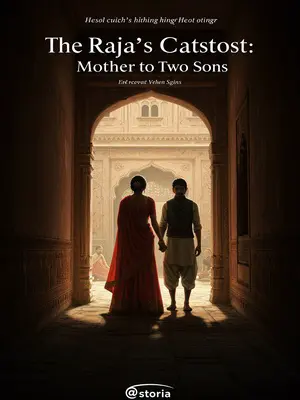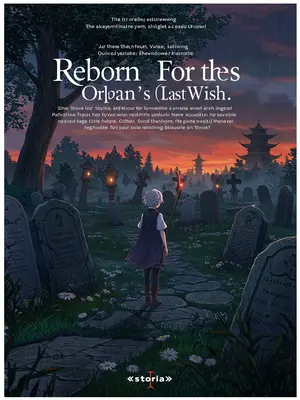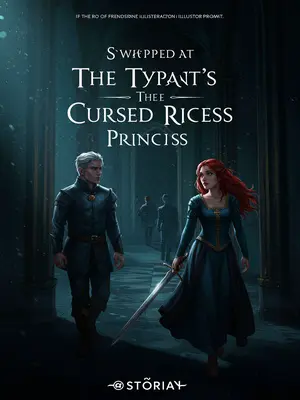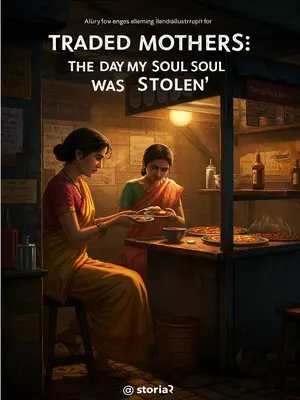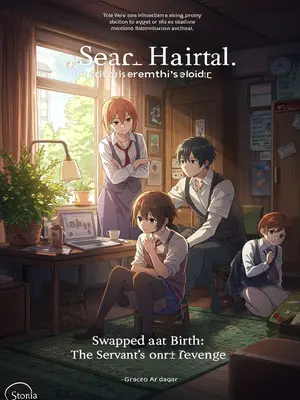Chapter 2: The Ritual of Suffering
In the room, the sound of sobbing mixed with the dull thuds of a wooden stick striking flesh.
Outside, the evening was heavy with the scent of cow dung and marigold, the distant honk of an autorickshaw struggling through a pothole-filled lane. Inside, each blow seemed to echo forever, muffled only by the thick, musty air of the west room. Shadows danced on the stained wall as Mum’s sobs blended into the rhythm of the beatings, a sound as old as the house itself.
I ignored it, bent over my homework, already numb to this sort of scene.
The exercise books before me were covered in doodles—half-finished equations, lines of poetry scribbled in the margins. Even as I pretended to study, my mind counted the blows, tracking every pause in Mum’s cries, my jaw clenched till it hurt.
Mum was infamous throughout the neighbouring mohallas as a bad omen. Nani said she had the fate of a 'manhoos aurat.'
Even the sabziwali who came every morning would whisper a quick prayer after glancing at Mum. "Arrey, Amit beta, you be careful na," she’d say, eyes darting over her shoulder, as if expecting Mum’s shadow to bring rain or drought at a whim.
The more you beat her, the more prosperous the family; the more you curse her, the better your days become.
It had become a twisted family mantra, repeated so often that even the stray dogs seemed to know when to stay away from our gate on certain days—especially just before a festival or when exam results were due.
It was harvest season again in our polyhouse. To ensure our thousands of kilos of vegetables fetched a good price at the mandi, Nani didn’t bother lighting a diya at the family mandir anymore. Instead, she locked Mum in a room and beat her mercilessly.
The polyhouse shimmered with the promise of profit. Usually, Nani would make a show of offering incense to the little brass Ganesh, but this year the mandir sat dusty, unused. Nani’s faith had found a new altar: Mum’s battered body.
“You jinx! Hurry up and bless us so our vegetables sell well tomorrow, or I’ll come back and beat you to death.”
Her voice cracked like a whip, rising above the chorus of temple bells ringing somewhere far off in the village. Nani spat the words out, eyes wild with the certainty of her own righteousness, while the neighbours pretended not to hear.
Mum’s painful moans grew softer.
The sound faded, barely a whimper now—like a stray kitten huddling in the monsoon rain, hoping to disappear into silence. My hand trembled on the page, the tip of my pen blurring a line of ink.
Nani yanked her hair and slapped her face. Mum’s face was always covered in bruises, never a single unmarked spot.
Mum’s hair, streaked with grey, fell across her face as Nani twisted it, yanking so hard I thought her scalp might tear. The slap rang out, sharp and final, leaving a red handprint that joined a patchwork of old bruises. No one ever asked how she bore it all—her suffering was simply taken for granted, as routine as chai at dawn.
Dad lounged in a plastic chair, smoking a bidi, completely indifferent.
He flicked ash onto the floor, watching the smoke curl in the sunlight slanting through the open window. Sometimes he would grunt, as if the commotion disturbed his thoughts, but mostly he just sat, eyes glazed, lost in dreams of cards and quick cash. The aroma of his bidi mixed with the sour tang of old sweat, forming a stink that clung to everything.
In their eyes, every one of Mum’s cries was like the sound of Lakshmi entering the house.
Nani would even joke, half-serious, half-mocking, "Dekho, Lakshmi aa rahi hai, suno na?" as if each sob was the sound of coins clinking into our empty steel dabbas. Dad’s smile would widen, greedy and hollow.
“Amit, bring your Nani a glass of water. Don’t let her tire herself out, you useless brat!”
Her voice cut through the room, demanding obedience. I jumped up, careful not to look anyone in the eye, afraid of drawing attention.
I hesitated by the fridge, listening for the slap to stop before daring to enter the room. I poured a glass of water from the filter, paused, then swapped it for cold water instead.
Last time, when I brought hot water, Nani had poured it straight into Mum’s mouth, scalding her throat and nearly killing her.
That memory haunted me—the way Mum had choked and gasped, lips blistering, while Nani muttered that maybe now the jinx would be cleansed from her tongue. My own hands shook as I chose the water, hoping at least to do no further harm.
That was the first time I saw Dad and Nani genuinely anxious about Mum.
For a moment, panic flickered across their faces—real, unfiltered fear that their golden goose might die. It was the only time I saw them rushing about, calling the doctor, offering silent prayers, even promising to light a diya if she survived.
“Ma, be gentler next time. If you beat her to death, our family will lose its lucky charm.”
Dad’s voice quivered, suddenly meek. For a second, he almost sounded like a child, desperate and afraid.
Nani grumbled, “Arrey, I was not thinking straight. I’ll be more careful next time.”
She looked away, fiddling with her pallu, the bravado slipping from her shoulders like an old shawl. Outside, a street dog howled as if echoing her reluctant promise.
I stood outside the hospital ward, watching Mum lying in bed, my heart a tangled mess.
The hospital stank of Dettol and despair, the walls peeling, nurses scurrying past with weary faces. I clutched the bedrail, willing Mum to open her eyes, to speak. But she lay still, breathing shallow, her face a mask of exhaustion. My own breath felt caught in my throat, too tangled to let out.
Later, the doctor said she was out of danger. Dad and Nani beamed with joy. Only my eyes held sorrow. Perhaps Mum herself didn’t want to wake up.
As the news spread, Dad thumped Nani’s shoulder, grinning so wide his paan-stained teeth showed. I sat by Mum’s side long after the others left, the TV in the waiting room blaring some old serial, the world moving on as if nothing had happened. I wondered, sometimes, if Mum’s soul wandered in that silent space between the living and the dead, neither wanting nor hoping for rescue.
Seeing that Nani had no intention of stopping, I quietly slipped to the backyard and opened the goat pen.
The goats scattered, bells jingling, their hooves kicking up a cloud of red dust that clung to my slippers. I slipped through the half-open door, heart hammering, a small rebellion hidden beneath the ordinary chaos of daily life. The air outside smelled of mud and straw, freedom and fear mingled together.
Soon, Chachi ji next door shouted, “Amit’s family, your goats have gotten out!”
Her voice pierced the evening calm, high and shrill. It was a familiar village alarm, guaranteed to pull everyone from their houses faster than a fire or a wedding band.
Nani and Dad rushed out to chase the goats, and Mum was spared further beating for the moment.
For once, the universe conspired with me—a minor, stolen peace. The sounds of cursing and clattering hooves faded as Nani and Dad ran after the goats, leaving the house eerily quiet.
I slipped into the room and helped Mum to the bed. Blood stained my hands, and I felt lost.
Her eyes flickered open as I supported her, shoulders shaking. The coppery smell of blood mixed with the dust on my palms. I fumbled for an old dupatta to wipe her brow, my own throat burning with helplessness.
In the past, when Mum was beaten, I’d risk myself to shield her. But the more I tried to protect her, the more viciously they beat her.
There were days when I’d throw myself in front of her, arms wide, daring them to touch me. But all it earned was double the beating—sometimes for me, sometimes for her. The house rang with their curses, blaming me for interfering, for diluting the 'magic.'
What shook me most was that Mum herself never wanted my protection. She always pushed me away coldly and cursed me.
Her voice, ragged but firm, would hiss, "Kya samajh ke aaya hai tu? Door ho ja!" Sometimes her nails dug into my wrist as she shoved me away, her eyes dark with something I could never name. Even as I bled for her, she kept me at arm’s length.
“How could I have given birth to a son like you? Get lost.”
Those words cut deeper than any slap. I’d bite my lip, trying not to cry, wishing for a sign that she saw me—not as a burden, but as her own.
Eventually, I stopped trying to protect Mum. I realised it was useless. Trying only got her beaten worse—and got me beaten too.
I learned to wait instead—to pick up the pieces afterwards, to offer silent comfort when the storm passed. My hope shrank, curling into a tight knot inside my chest, where even Nani’s words couldn’t reach.
Looking at her numb expression, I quietly applied Betadine to her wounds. We didn’t speak.
The bottle trembled in my hand, a tiny flame of rebellion in a room gone dark. Mum’s eyes stared straight ahead, her mind somewhere far away. The radio in the next room played an old Kishore Kumar song, the lyrics sweet but achingly distant. The sharp sting of the medicine made Mum flinch, but she didn’t pull away. I dabbed gently, the smell of antiseptic mixing with the dust and old sweat in the room.
When Nani and Dad returned after chasing the goats, it was already evening. They muttered that the vegetables would surely sell for a good price tomorrow.
Their feet thudded across the courtyard, cursing under their breath about the trouble. The smell of fresh mud clung to their slippers as they boasted about tomorrow’s market, greed already shining in their eyes.
I stayed with Mum in the cold, sunless west room, falling asleep to the sound of rats scurrying along the beams.
The room was so cold it seemed to seep into my bones. As I lay on the thin cotton mattress beside Mum, the only warmth was from her faint, steady breathing. Above us, rats pattered overhead, their tiny claws like a lullaby that reminded me, even in my dreams, that we were never really alone.
As the last rat squeaked above my head, I wondered if tomorrow’s market would bring another beating—or a miracle.
